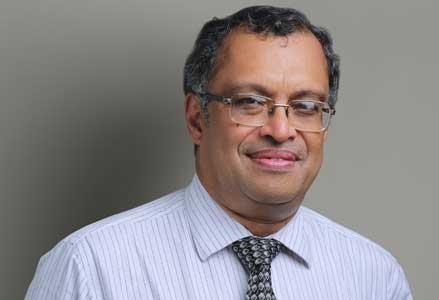| |
 Dr. Mathew AbrahamSenior Consultant, Neurologist Aster Medcity, Kochi Dementia is the loss of multiple domains of brain function, which reach a stage
that it significantly affects professional and activities of daily living. The
chances of developing dementia increase with age, especially after 60. With life
expectancy on the increase, more and more patients are going to get dementia.
This is therefore becoming a huge social and medical problem, especially in
the developing countries, with a largely young population at present. It is
estimated that by 2030, 80% of the world’s dementia patients would be in India
and China. Sadly we do not, as yet, have the physical, medical and social
infrastructure to look after this affected population.
Only about 8% of all patients with dementia have a reversible cause. These would
include Vitamin deficiencies like Vitamin B12 (more likely to be seen in pure
vegetarians), Hormone deficiencies like hypothyroidism, and Organ failures like
hepatic or renal dysfunction or overuse of drugs or toxins. A small group among
these suffer from Pseudo dementia which is a dementia- mimic brought on by
anxiety and depression. All they need is reassurance, anti-anxiety and
anti-depressant drugs for full recovery.
It is of paramount important that all
patients are first screened for treatable dementias, as any delay in this
diagnosis makes an eminently treatable disease beyond redemption.
I had a patient who was an Ayurvedic physician who had lost his mental faculties
to the extent that he was urinating in public. Detailed investigations revealed
that he had a significant B12 deficiency which was appropriately corrected. He
could resume his consultation practice within two months of treatment, which
only highlights the importance of identifying and treating such reversible
dementias early.
After the group has been treatable dementias have been screened for and treated,
we have a small group of partially treatable dementias, which are mainly due to
multiple strokes. Hypertension, diabetes, smoking and high cholesterol are risk
factors for the progression of this vascular dementia. Life style modifications,
control of diabetes and using aspirin helps prevent a progression of this
disease and even reverse some of the symptoms, making it a partially treatable
dementia.
We are still left with a large percentage of patients who fall in the category
of irreversible dementias like Alzheimer’s disease, Fronto temporal dementia,
Dementia with Lewy bodies or mixed dementias. Although gigantic strides have
been made in the understanding of the pathophysiology, progression and genetics
of these diseases, we still have not yet found treatments that will reverse or
cure these conditions. Depending upon the specific circuits that are affected,
these present with derangements of memory, organizational and executive ability,
behaviour, speech and language or inability to identify and use tools in daily
living (Apraxia). Over a period of time, the symptoms overlap as the pathology
progresses from one area to another, eventually leaving the patient in a
pitiful, helpless, incontinent and bedridden state.
The caregivers of these patients are the ones who bear the brunt of looking
after these patients. The quality of their care can only be improved by
educating them about the diseases and their progression, as well as supporting
them psychologically and socially. Looking after such progressively dementing
patients is a 24 x 7 job and sadly, a thankless one. This is where support
groups like the Alzheimer’s Society help in educating and enhancing the spirit
and morale of the caregivers. Such NGO’s have done a tremendous job in improving
the public awareness of dementia, thus helping relatives to bring such patients
early in the disease so that pharmaceutical and social interventions can be done
early. These help to improve the quality of life of both the patients and the
caregivers in this tragically progressive downhill course.
An enormous amount of research is going on in multiple fields in many
institutions the world over, trying to find out the cause and possible cure for
these as yet untreatable diseases. There is every chance that some serendipitous
discovery in medicine or in some other obscure field may open the floodgates to
new discoveries that will help make these diseases totally curable.
We can only hope and pray that this goal will be reached in our own lifetime.
|


